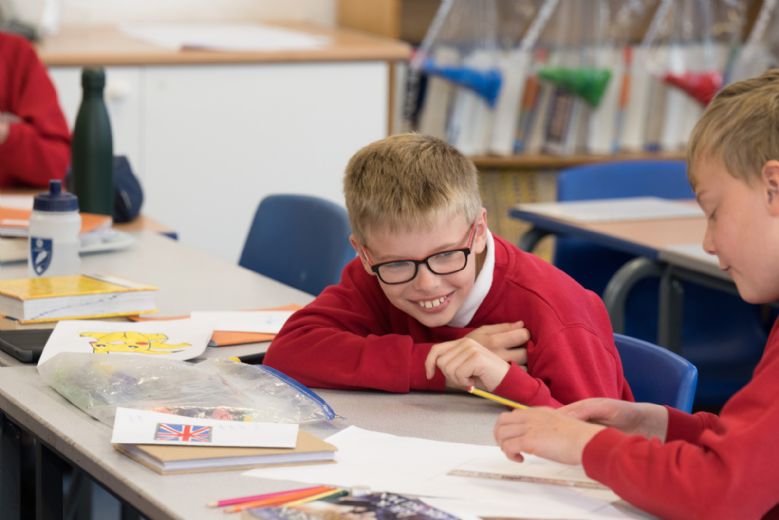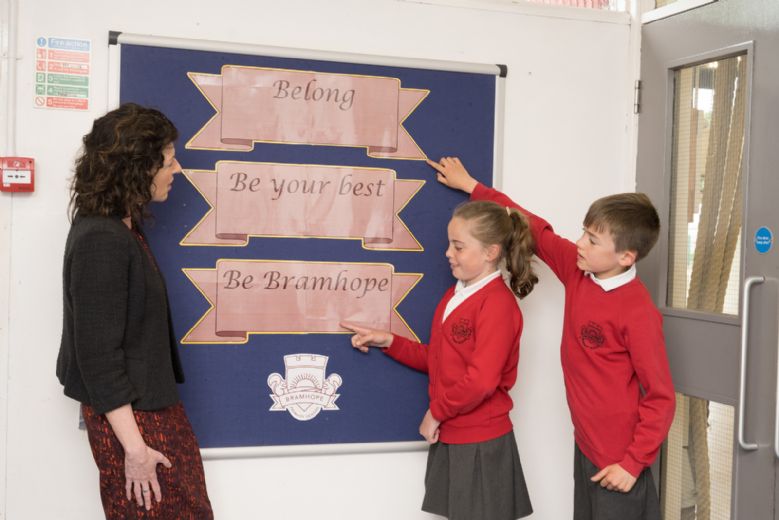RE
Welcome to RE: 
Subject Coordinator: Miss Maull
Contact: beth.maull@bramhopeprimaryschool.co.uk
At Bramhope Primary School, we believe that a high-quality RE helps to nurture informed and resilient responses to misunderstanding, stereotyping and division. It offers a place in the curriculum where difficult or ‘risky’ questions can be tackled within a safe but challenging context.
We believe that RE is a vital part of children’s education and has a significant and valuable role in the taught curriculum and it should inspire curiosity to know more about other people’s faith and beliefs.
RE begins in the Early Years Foundation stage, where the children learn about the lives of the people around them and their roles in society and to recognise similarities and differences between different religious and cultural communities.
The curriculum is progressive and builds on prior learning by using the Leeds locally agreed syllabus, and it is supplemented with some Understanding Christianity units at Christmas and Easter. As the school moves from mixed-age to single-age classes, we are currently in the process of updating the units, using materials from the RE association schemes of work.
High quality RE teaching should equip children to ask perceptive questions, think critically, formulate arguments, and develop perspective and judgement. The teaching of RE helps our children to understand the complexity of people’s lives, the diversity of societies and relationships between different groups, as well as their own identity
what makes RE different at bramhope?
RE at Bramhope reflects our whole school vision and school motto – Belong, Be Your Best, Be Bramhope – in the following ways:
Belong:
- Delivering a diverse RE curriculum through which many faiths and world views are represented.
- Enabling children to understand which faiths are represented in our local area.
- Helping children learn about the global community by exploring different faiths and world views.
Be Your best:
- Having high expectations of academic achievement in RE.
- Valuing other people’s views that are different to their own.
- Being resilient and independent through critical thinking and conducting debates.
Be Bramhope:
- Our pupils learn about and meet significant local people, learn about and visit local places and learn about events and festivals to help them see the relevance of belonging to their lives.
- Having the opportunity to lead debates
Our curriculum is designed so that units taught in KS1 provide a foundation for what will be taught in KS2.
Outside the classroom, we want to teach children to become good citizens. RE gives pupils the knowledge and skills to flourish both within their own community and equips them to engage in life in an increasingly diverse society.

what are the lessons like?
RE is taught at Bramhope as a discrete subject. Each lesson is knowledge rich, seeking to teach the children the key content they need to know and remember. In addition, children are encouraged to share their ideas and ask questions.
Each unit of learning has an over-arching enquiry question which children should be able to answer at the end. Examples of our enquiry questions are: How do the 5 pillar guide Muslims?
Teachers are aware of prior and subsequent learning and lessons are created around this. Retrieval practice forms an important start to lessons with the aim of supporting the retention of key knowledge and developing understanding. Lessons are planned as a sequence of learning which all link together.
RE lessons at Bramhope support the spiritual, moral, social and cultural development of our children. Spiritual - considering the spiritual beliefs of different groups in society. Moral - studying RE lends itself to debates and a consideration of different points of view. Social – Their own social development is encouraged through paired and group work and debates. Cultural - Children are encouraged to gain an understanding of and empathise with people from different backgrounds and religions. They develop a better understanding of our multicultural society through studying different religions and world views.
Children’s work is presented in big class books, which can be used to showcase and remember what they have learnt. In RE, children’s learning is not always recorded in written form, it may be photos of drama or responses on post-it notes in debates.
RE is enriched through visitors to school who deliver workshops or share experiences. We also aim to provide educational visits which add to the learning experiences of our children.

What do we mean by progress?
We believe in providing a knowledge rich RE curriculum that provides opportunities for children to remember and develop key subject knowledge as they journey through primary school. Threads are built into our curriculum which allow for concepts to be revisited more than once. For example, when children learn about Christmas and Easter, they learn about it from a different perspective each year.
A knowledge-rich curriculum enables the children to build their knowledge and understanding to compare religions and debate from different points of view.
The enquiry questions are designed to keep the curriculum focused and support progression of key concepts and religions
What do we mean by assessment?
RE is assessed using formative assessment by the class teachers. Key knowledge which needs to be remembered is tested through regular opportunities for retrieval practice. Teachers are skilled questioners within the classroom and can identify children who need to be further challenged in discussions and by providing challenge activities in lessons. Children are encouraged to show progress by making increasing links to previous learning.
At the end of a unit, assessment tasks can be used to showcase the children’s knowledge and understanding. Tasks can take the form of mind maps, debates, or creative tasks such as making posters.
Class teachers may decide to use a quiz to test knowledge and understanding at the end of a unit. The curriculum is designed so that there are opportunities for concepts to be revisited more than once and skills to be continuously developed. This means there is no need to hold interventions to close gaps in RE.
curriculum documents and useful links
